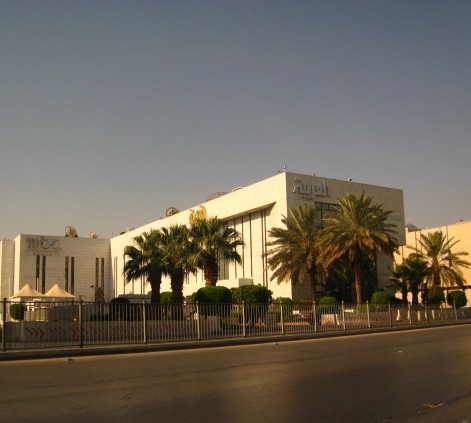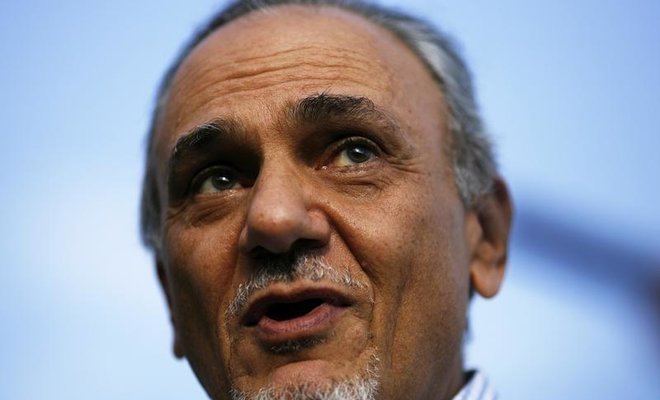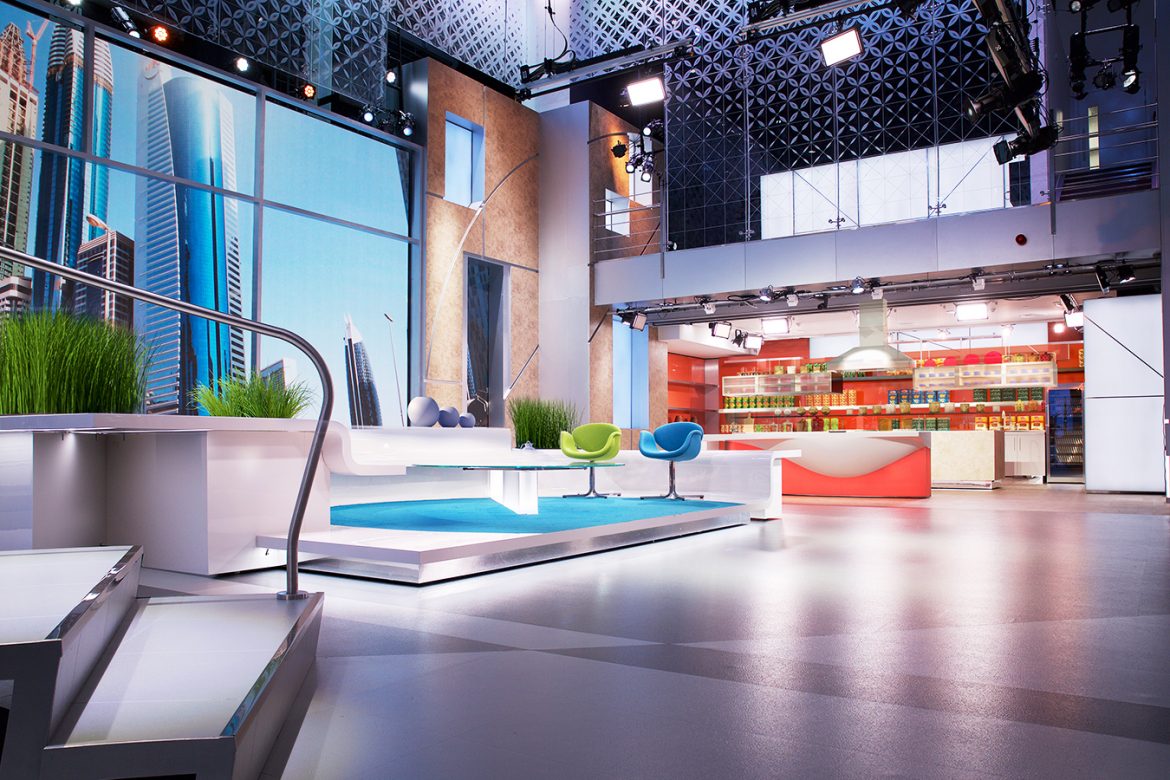This material belongs to: Financial Times.
Founder of media group MBC is among 150 princes and businessmen detained in crackdown.
Saudi Arabian authorities plan to take control of the Middle East’s largest media company as part of Crown Prince Mohammed bin Salman’s extraordinary anti-corruption crackdown.
Officials have ordered Waleed bin Ibrahim al-Ibrahim, the founder of the Middle East Broadcasting Center (MBC), to hand over his controlling stake in the company to secure his release, according to people briefed on the matter.
His case illustrates how the crackdown, lauded by many Saudis as an overdue attack on corruption, appears in part to be a shakedown of coveted assets and is leading to the nationalisation of private sector powerhouses. It also hints at a desire by Prince Mohammed to tighten the government’s grip on the media as he pushes ahead with ambitious reform plans and an increasingly assertive foreign policy.
MBC is the largest free-to-air Arab TV network, enjoys 50 per cent market share in kingdom and attracts 140m viewers daily across the region. The company and the government declined to comment.
Mr Ibrahim, who set up the multibillion-dollar media firm in London in 1991, is one of more than 150 princes, business tycoons and former ministers arrested and detained at Riyadh’s Ritz-Carlton hotel after Prince Mohammed launched the anti-graft purge in November. Many have been released in recent weeks, some reaching settlements in which they agreed to handover assets and cash to the authorities, while others have been cleared.
Those detainees who do not make a settlement with the authorities will be transferred to prison to await trial, the government has said. Prince Alwaleed bin Talal, the billionaire investor and highest-profile detainee, has yet to settle with the authorities, people briefed on the matter say.
Mr Ibrahim, who is allowed to make some phone calls, remains at the Ritz-Carlton as he waits for the authorities and their international consultants to finalise details of a settlement, the people said.

The authorities earlier told MBC that he would have to hand over his shares in the broadcaster free of charge. There have been numerous government requests for financial and regulatory information commensurate with takeover due diligence, said the people.
Mr Ibrahim has let it be known that he expected to be released shortly. “He’s waiting to pack his bags,” said another person briefed on the matter.
Some government advisers suggested the delay on the settlement may have been caused by lawyers seeking to ensure any deal is drafted in a manner to prevent detainees suing the government after their release, the people said.
One potential offer to Mr Ibrahim is for him to continue having a role at MBC once Prince Mohammed or the state have taken over the company. He would then report to a board that includes officials close to the heir apparent, the people said.
Such an outcome would mirror the fate of Saudi Binladin Group, one of the kingdom’s biggest construction firms. Some of its shareholders were released from the Ritz-Carlton after they agreed to transfer shares to the government and report to a state-appointed committee entrusted with “restructuring” the indebted contractor.
Mohammed al-Jadaan, the finance minister, said on Thursday that most of the $100bn Riyadh hopes to raise from corruption suspects will come from assets inside and outside the kingdom.
Prince Mohammed has long harboured an interest in MBC and people close to the 32-year-old were in talks with Mr Ibrahim on acquiring his controlling share of MBC for about two years, the people said.
Mr Ibrahim, however, disputed their valuation of $2bn-$2.5bn, holding out for a higher price of around $3bn-$3.5bn for the broadcaster, which attracts about half of the region’s television advertising spend, industry executives said.
Days before the crackdown, the media mogul boarded his private jet after a confidante of Prince Mohammed invited him to Riyadh, assuming they would conclude the acquisition talks. When his meeting was cancelled, Mr Ibrahim decided to head back to Dubai, where MBC has its headquarters. But officials at Riyadh airport told him his plane was grounded and that no commercial flights were available, said one of the people briefed on the situation.
The same evening, his name went viral on social media as Saudis speculated that he was one of scores of prominent people snared in the anti-corruption drive. The next morning, his meeting was reconfirmed but, instead of discussing the deal, he was arrested.
Prince Mohammed’s dramatic rise to power has been accompanied by greater control over the domestic media and less tolerance towards dissent. Observers say MBC was an obvious target as he is keen to ensure that his bold plans for the kingdom garner positive coverage.
“When Prince Mohammed was in need of popular appeal a few years ago, he was willing to buy MBC, but now he is in charge he can just take it,” said one observer.
He would not be the first Saudi leader to move to take charge of private media assets to use them to promote the state’s message. About three years ago Riyadh took more control over Al Arabiya, the kingdom’s satellite news channel, which was part of the MBC group, people aware of the matter say.
It has since been used more aggressively to counter the influence of Al Jazeera, the network owned by Qatar, Saudi Arabia’s Gulf rival.
At MBC, Mr Ibrahim had for years acted as a buffer against official meddling, helped in part by his royal connections. His sister married the late King Fahd, and Mr Ibrahim’s nephew, Prince Abdulaziz bin Fahd, is believed to be a shareholder in the company, which was set up with the help of state loans.
But Prince Abdulaziz is another of those detained in the corruption crackdown and staff at the network, which always reflected government thinking, fear it will lose the modicum of independence it enjoyed.
“This, we fear, is what will kill the spark that has for years allowed MBC to thrive,” said one observer.
Prince Turki tells Davos: ‘Corruption is a disease that has to be rooted out’
This material belongs to: Arab News.

DAVOS: Prince Turki Al-Faisal, Saudi Arabia’s former ambassador in Washington and London, mounted a strong defense of the anti-corruption campaign in the Kingdom at the World Economic Forum annual meeting in Davos.
Speaking on a panel entitled “Middle East and North Africa Strategic Outlook” with regional business and political leaders, he said that the campaign would not deter foreign investment in the Kingdom.
“I cannot accept the proposition that fighting corruption will drive away investors. It will attract them, because they know they will not have to pay the extra 5 or 10 percent for bribes,” he told Davos delegates.
He also insisted that due process of law was being observed in the campaign, which has led to several prominent business figures being held for investigation of their financial affairs at the Ritz Carlton hotel in Riyadh.
“Those deemed to be innocent have been released. Those who reached a settlement with the government will give back money and they will be set free. Those who chose to go to court will do so. But there is due process. They speak to their lawyers and the families from the Ritz Carlton,” he said.
The campaign is the result of a two-year investigation ordered by King Salman.
Prince Turki said: “This has been a long-running campaign planned by the King for a long time. Corruption is a disease that has to be rooted out. If you don’t deal with it, you’re accused of doing nothing. If you do, people start inventing stories about due process.”
His anti-corruption stance was echoed by another Gulf business leader. Alain Bejjani, chief executive of the UAE-based conglomerate Majid Al Futtaim, said that he had attended the Future Investment Initiative held in Riyadh last October, staged at the Ritz Carlton.
“I was delighted to see the world coming to Riyadh and putting Saudi Arabia back on the map. Since then, we have had the anti-corruption campaign, which I believe is a great thing in our part of the world.
“Let’s acknowledge that being against corruption is a good thing. When there was corruption in there system, nobody worried then about due process, but now some people worry. That is strange. But I do believe the business world needs more communication about what is going on,” Bejjani said.


